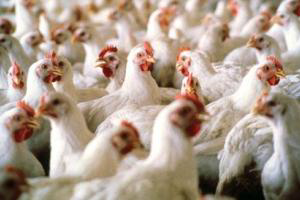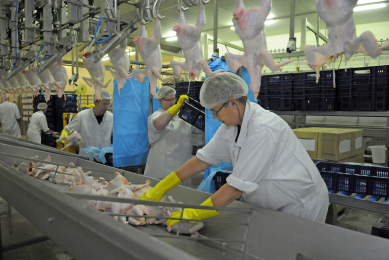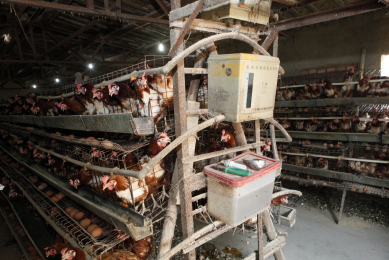FAO supports Liberian poultry farmers

The Food and Agriculture Organization of the United Nations (FAO) is encouraging Liberia’s rural farmers, many of whom are women, to take up poultry production.
Under the Joint Programme on Food Security and Nutrition (JPFSN), FAO in collaboration with the Ministry of Gender and Development and Ministry of Agriculture, constructed ten poultry houses in Bong (2), Lofa (2) and Nimba (6) for ten organised female farmer groups (Rural women structures).
Each building was stocked with 500 broilers for meat production and 500 layers for egg production in the first quarter of 2011. Besides training in improved poultry production, vaccine application, feed formulation and other associated but essential inputs were provided.
FAO poultry programme in Liberia
Being one of the promising agricultural areas of investment in Liberia, poultry production deserves the same attention given to food crops. With global expertise in poultry production and management, FAO has also underpinned capacity building as a major cornerstone for a viable poultry enterprise in Liberia.
Importantly, the need to encourage more rural participation through farmer-based organisations (FBOs) to go into poultry production is a matter of priority and urgency for FAO and partners as chickens and chicken products do not only serve as sources of protein-rich food but also a huge income generating venture. Hence, better production at home could end the importation of chicken products from Europe and elsewhere.
The FAO, at the request of Government of Liberia through the Ministry of Agriculture (MOA) is currently providing support to 300 poultry farmers in Lofa County for the production of both broilers (meat) and layers (eggs). The intervention is worth around US$500,000 and is funded by FAO. The construction of three modern poultry facilities is nearing completion at each project site in Konia, Zorzor District; Vezala, Voinjama District; and Kpasembedu in Foya District respectively.
In these recent interventions, FAO is not only providing production inputs including housing, day-old chicks, vaccines and medications, but also training beneficiaries in feed production and formulation as a way to remedying the chicken feeds shortage situation in-country.
During the period mentioned above, FAO supported the construction of five poultry buildings across the three districts (Tchien, Gbarzon, and Konobo) in Grand Gedeh County in the following communities: Zwedru City, Gboleken, Pellizon, Zleh Town, and Ziah Town for the purpose of empowering around 350 beneficiaries including former fighters.










